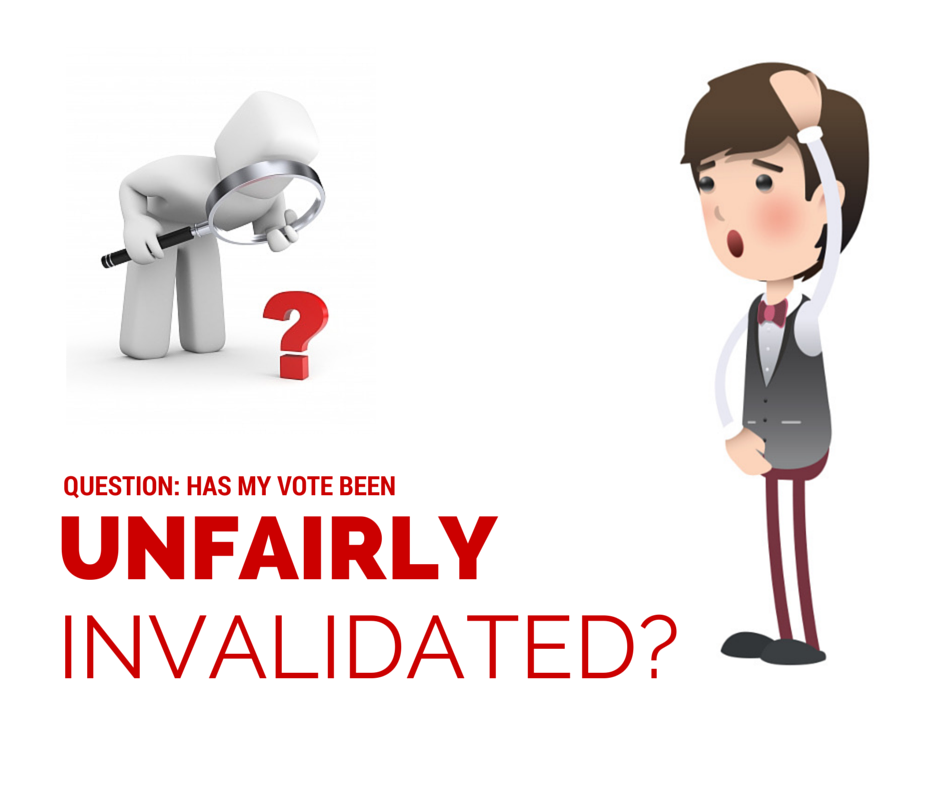I believe my (& 11 other) votes were incorrectly disqualified at a Body Corp. EGM and would appreciate your opinion in the following scenario:
- EGM was held at 11am on 1 Dec 2014
- The Chairperson “noted twelve (12) Lots had submitted invalid voting papers due to a debt owing to the Body Corporate”
- The due date for the levies was the same day as the EGM i.e. 1 Dec 2014
- The explanation received from the Chairperson regarding the disqualification was that my and other Lot owners levy payments had not been received prior to the start of the EGM.
- I believe the method of determining whether a debt was owing is incorrect as the due date had not expired prior to the EGM as payments were due on the day by close of business i.e. 5pm.
I would appreciate your opinion, based on the above scenario, whether the criteria applied to invalidate my vote are correct or not.
A further point to mention, beyond the above scenario, is that a subseqfinancial statement from the Body Corporate Manager shows my levy payment as received on the due date and the ‘on time discount’ was applied. No further amounts were outstanding.
Will
In my opinion the body corporate has made an error in declaring the twelve votes invalid due to lot owners being un-financial.
If the due date is 1st of December and the levies are paid on the 1st of December then they are paid by the due date, notwithstanding the body corporate did not actually receive notice of the payment until after the due date.
What was the body corporate up to?
That might make it seem like the body corporate is up to something nefarious but that’s not my reading of the situation at all.
The EGM has fallen on the same day as the levy issue is due. The meeting was held at 11.00 am and there’s no information as to when the levies were paid.
Direct debit payments however do not show up on bank statements until the day after the transfer is made.
When the body corporate manager and Committee attended the meeting they had the most up-to-date information as to who had paid and who hadn’t, and clearly the 12 lot owners had not paid, notwithstanding they may still do so.
That puts the body corporate in a difficult situation. What do they do about those who’ve not paid?
In the circumstances I would expect the Committee to make a “rule of thumb”, a policy decision on how they plan to treat the situation, and then apply that ruling even-handedly across all the lot owners.
In this case it appears that’s exactly what’s happened.
All those who had a balance outstanding on the due date were ruled un-financial and their votes not counted.
It’s a good choice that allows the meeting to proceed with certainty.
Were they right to decide that way?
Unfortunately I don’t think it was the right decision. Declaring the votes un-financial denied the lot owners their statutory right to vote, something Adjudicators and the Courts as whole pretty much frown upon.
There seems no dispute that the due date is at the end of the day specified in the resolution issuing the levies. The lot owner has paid the account by the due date and had his discount applied indicating the body corporate’s acceptance of the payment.
The issue is whether or not it’s fair to apply a cut-off-time for the purposes of the meeting.
From Sunny Waters [2013] QBCCMCmr 428 (28 October 2013) the Adjudicator noted that if a lot owner had an overdue amount they could attend the meeting, submit the payment at the meeting and then be entitled to vote.
I’ve personally had many experiences as a Returning Officer acknowledging payments received at meetings. So long as the payment is made before opening the ballots the lot owner is financial and the vote is valid.
But how does that apply to this situation? The lot owner apparently wasn’t at the meeting and couldn’t tell the body corporate that the payment had been made.
The body corporate had to proceed with the information they had.
It’s a stretch I think to say that because the payment had not been received it would not be received.
In Sunny Waters [2013] QBCCMCmr 428 (28 October 2013) the Adjudicator noted
“In a previous dispute I noted that the High Court has concluded that payment by cheque applies from the time the cheque is given, albeit conditional on the cheque being subsequently honoured. As such a person may vote in reliance of a cheque that has not yet cleared. If a cheque is subsequently not honoured, the body corporate may be entitled to recount the voting to exclude the votes that were accepted based on the conditional payment.”
The same would surely apply to direct debits?
The body corporate would have been aware that some owners would pay on that day, the due date. They would also have been aware that they couldn’t be sure if the payments had been made until the next day.
The body corporate may argue that to validate the votes they would have had to make a decision about who would and wouldn’t pay, which is difficult to do.
It would have been better to make a ruling in the other direction, ie validate everyone who only has the last levy issue owing, and assume that they were going to pay.
But wait … there’s more
I spoke with this particular lot owner later and was told that part of the voting was decided by secret ballot, which puts a somewhat different spin on the issue.
The body corporate could proceed with the assumption that everyone had paid, and then invalidate those votes when it was found that they hadn’t.
But when the motion is secret it’s not that simple. Once the votes are open there’s no way of knowing who cast what vote to invalidate the incorrectly opened ones.
In which case the body corporate, or rather the Returning Officer, appears to have made a valid decision that best weighs all the options.
And yet, there still exists this situation where a lot owner has paid their levies on time and yet been denied their right to vote.
So, has my vote been unfairly invalidated?
There’s pros and cons for each side here and there is no clear delineation of who is “right”.
Lord knows I can’t answer. All of the above is a product of my research and is solely my opinion. It could be fatally flawed somewhere or there are other telling factors I’ve not even considered.
In essences it’s a dispute, and exactly the sort of thing the Office of Commissioner for Body Corporate’s was created to decide. They gather all the evidence, consider the case law and make a determination.
The crux of the matter is what happens when a general meeting falls on a levy due date? How is the body corporate to treat those lot owners who have not paid?
Some brave soul would need to make an application on similar circumstances to get a clear ruling on how matters are to be treated.
It’s not likely to be this case however as the next question is “how has the invalidation affected the voting and would counting the invalid votes make a difference?”
In this case the answer was no, no validating the votes would be unlikely to make a difference.
I’d like to say a huge thank you to Will for his question and permission to publish the answer.

 Unless stated otherwise all the information on this website relates to Queensland legislation.
Unless stated otherwise all the information on this website relates to Queensland legislation.
Hi Lisa
Could you please clarify for me the following:
Nominations for the AGM – Using the Nomination Forms provided by the Body Corporate Manage, can an Owner on one form nominate 1 eligible person to ALL positions and on a second form nominate themselves to ALL positions as well?
Many thanks
Viv
Hi Viv
Each lot can only nominate one person, but that one person may be nominated for all positions.
I wouldn’t submit two forms. If I receive two votes from the same lot when I act as returning officer I invalidate both rather than decide which one is valid.